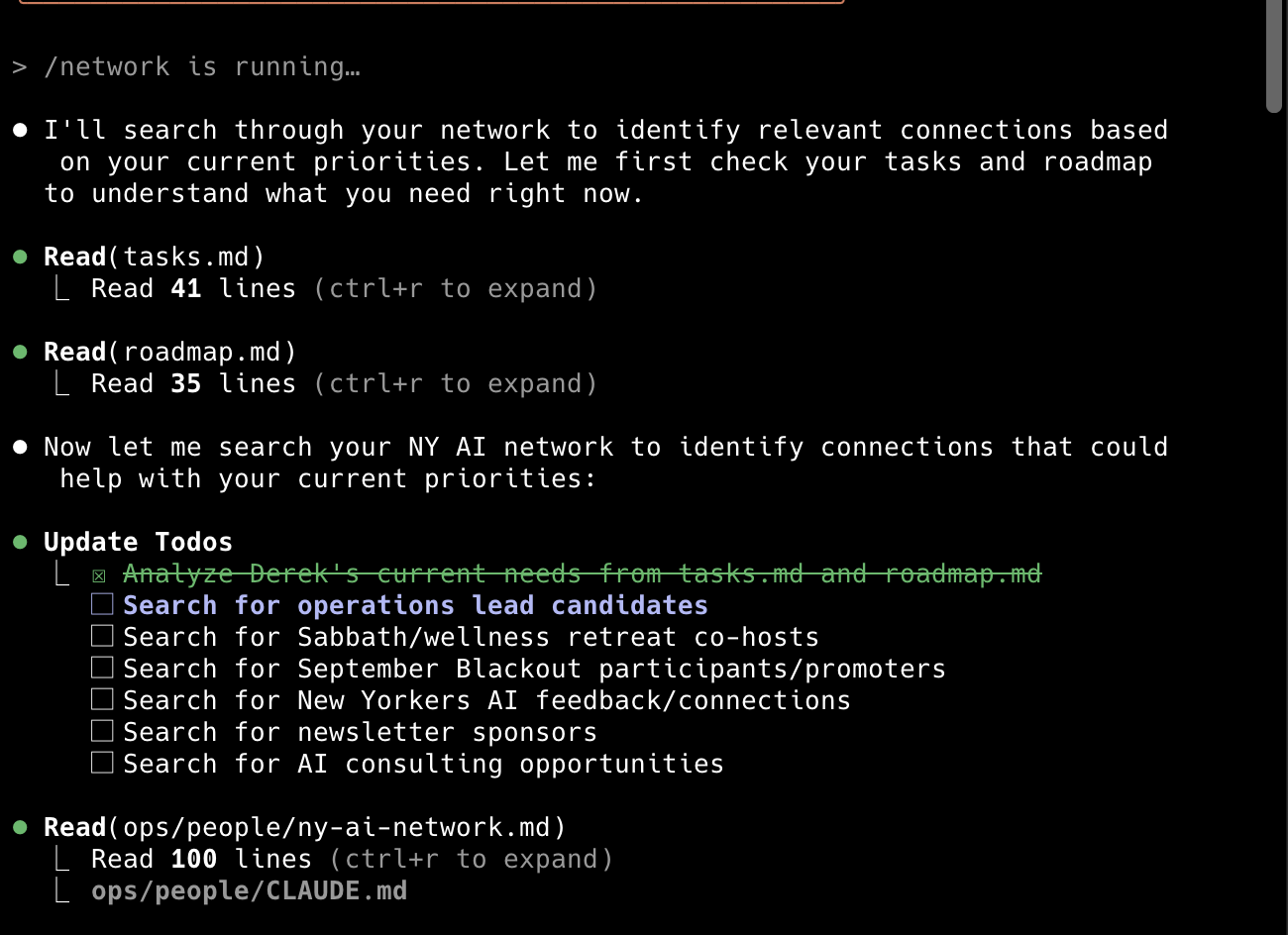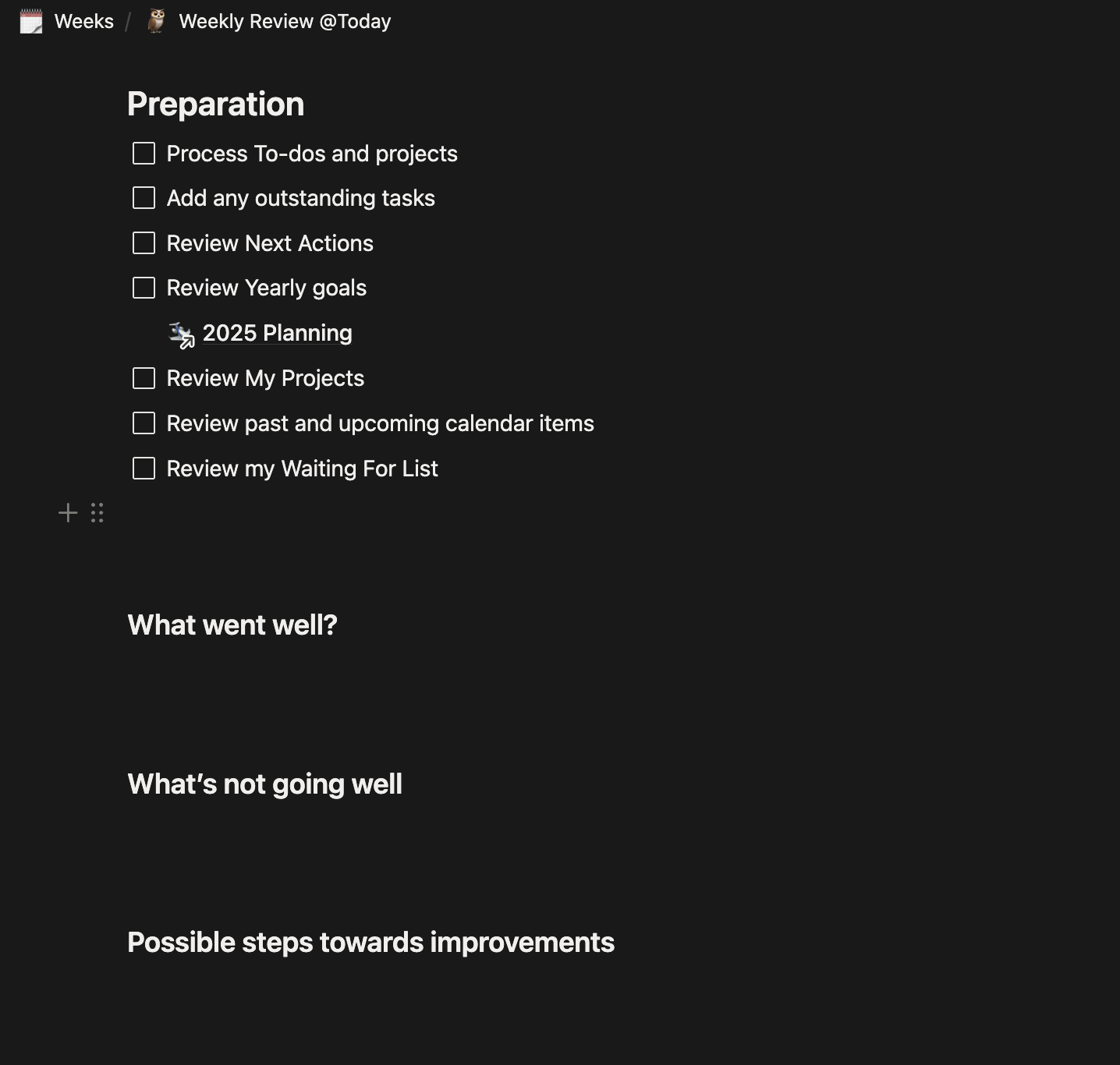Feed the Beast: AI Eats Software
I was eating pho with a friend in Brooklyn.
He told me his CEO - who’s never written a line of code - was running their company from an AI code editor.
I almost fell out of my chair.
OF COURSE. WHY HAD I NOT THOUGHT OF THAT.
I’ve since gotten rid of almost all of my productivity tools.
ChatGPT, Notion, Todoist, Airtable, Google Keep, Perplexity, my CRM. All gone.
At first it felt like losing a limb. I’d been using some of these for almost a decade.
Now, my work centers around text files.
The Old Way: Conform to Software
Software interfaces force their way of thinking on us.
Notion wants hierarchy, a CRM wants structured fields, ChatGPT has chat threads.
All require clicking, learning the interface, and copy-pasting between tools.
The New Way: Feed the Beast
“I use AI” -> “AI uses my data.”
Claude Code is the center of how I organize my working life.
An AI that can read and write files on my computer.
My role is to ensure it has the data it needs.
To-dos, meeting notes, roadmaps, specs, philosophy, emails, essays, and more.
The more I give, the more AI can help.
People overestimate AI’s value with writing, and underestimate its value for reading.

Example 1: Who should I be asking for help?
Network search is one of my favorite use cases for Claude Code.
I made a custom slash command that searches my network.
Step 1: I type “/network” in the command line
Claude then:
- Reads my to-dos and roadmap
- Predicts what I need help with
- Searches my network for matches
- Suggests who I should reach out to

I then get a list of 10-20 top picks, how they overlap, and their contact info.
Example 2: Weekly Review
Before Claude code I hated doing my weekly reviews.
80% of the time I’d skip them, despite the clarity they brought.
THE OLD WAY
Bounce between 5 software tools to find the data I need.
Write in a Notion Doc.

THE NEW WAY
I run “/weekly” from Claude Code.
- Claude looks at every file change since last week
- Claude evaluates the state of projects, tasks, and the roadmap
- We have a conversation to dig deeper, and make decisions
- Claude generates a document summarizing the week and plan we agreed on
Running /weekly

Claude spots things I’m missing, work I’m procrastinating on, and creates a space to dump everything on my mind.
It then updates files in preparation for the week ahead.
Outputting a Review:

Weekly reviews are now something I look forward to.
Example 3: The Overnight Assistant
Common routine: wake up, check email, Slack, calendar, CRM, Linear, product metrics, Github PRs, etc.
Then get distracted and overwhelmed.
Instead, Claude checks everything while I sleep (via Github Actions + MCPs):
- Prepare meeting briefs (past conversations + company research + email history)
- Sift through product metrics and support tickets that may indicate problems
- Look at all inbound data, and existing tasks, and help prioritize for the day
When Claude is done synthesizing, it creates a pull request with its findings and suggests next steps.
Failure Modes
1: Early Days, Rough Edges
“AI Teammates” are not here yet.
AI infrastructure is still nascent and often painful to set up.
2: Indifferent Amplifier
With AI, you can run yourself off a cliff (or into the promised land) at record speed.
No need for editors, co-founders, therapists, or employees.
If you’re creating something nobody wants, AI will accelerate that.
If you are moving in the right direction, AI will accelerate that.
3: AI Holes
If I asked a human “Is this email draft any good” for 45 minutes straight, they’d throw my computer at the wall. AI will oblige without complaint.
The solution isn’t asking for “honest feedback” - it’s recognizing when you’re in an AI hole and pulling out.
The Agents are Coming
I inspired a CEO (of a 40-person startup) to run his operations on text files.
His entire team is using Claude Code.
Customer feedback, sales calls, support tickets, user research, bug reports - it all gets thrown into the pot. AI handles how to organize and connect the data.
His comment: “We are enabling AI agents that will one day run the company”
Autonomous Agents
“I use software” → “I use AI” → “AI uses my data”
For most people, they are still the catalyst.
They wake up, search for files, write a prompt, copy-paste data, watch AI work, provide feedback, copy-paste the result.
But that’s changing.
One measure of AI progress: how long can AI do useful work without supervision?
Since Claude Code:
- has all of my data
- can search the internet
- knows my to-dos and goals
- can plan and find files
It can start on my tasks without me.
Before I wake up in the morning.
The beast is hungry. Feed it well.
Hundreds of you reached out about wanting to migrate.
We created a way to make it easier to Feed the Beast.